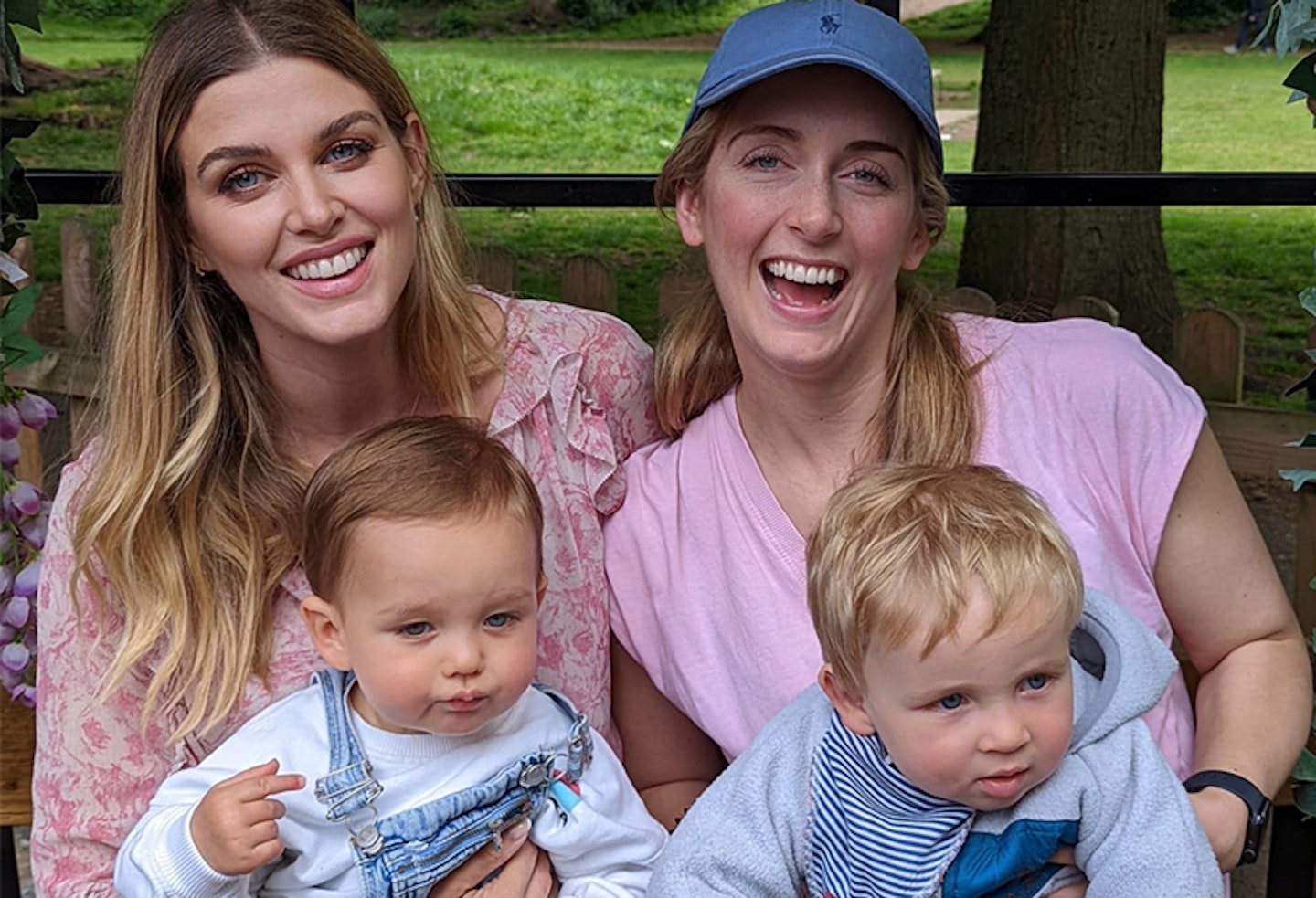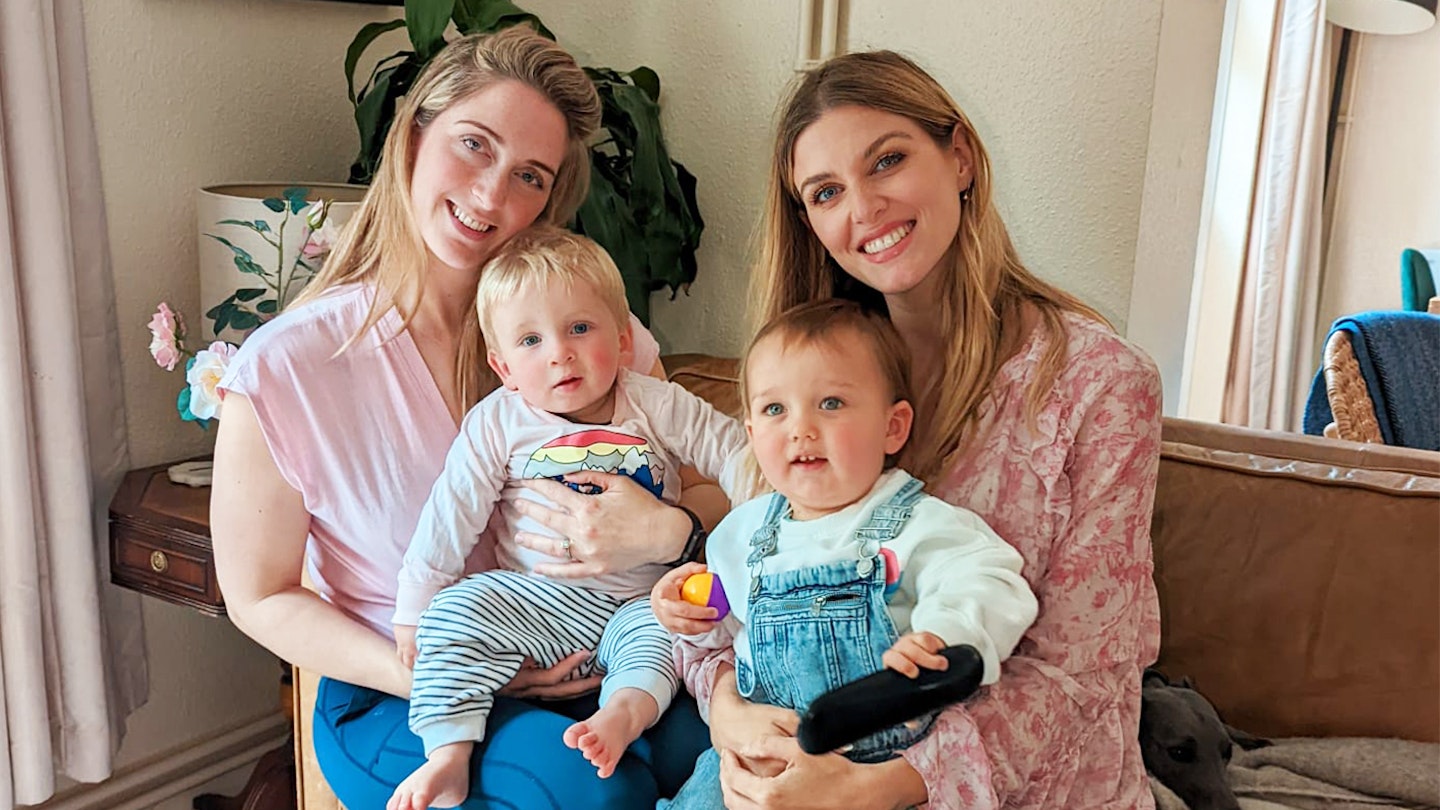Returning to work after maternity leave can conjure up a mixture of emotions, as many of us know, and is something DJ and presenter mum, Ashley James, says she’s too experienced, since going back to work after giving birth to Alfie, aged one.
“I felt pressure to prove myself and prove that I was still who I was,” admits Ashley. “In hindsight, I think I tried to do too much too soon, because, in my determination to prove that I could still do everything and that I was willing to get back on TV and behind the DJ decks, I was still exclusively breastfeeding and I found that really challenging, especially when there's so much misconception over how demanding exclusively breastfeeding is. I ended up doing it live on TV on the Jeremy Vine show and I remember feeling, not embarrassed about it, because it's something I am proud of, but I was so desperate to prove I wasn't just a mum, but there I was in my place of work being a mum. There's almost two professional hats you have to wear; you can be a mum at home, but when you go to work people don't really want to know about being a mum.”

No matter your working circumstances, whether you return to work almost immediately or so many months after, Ashley says all mum’s share the similar feelings of ‘overwhelm’ and ‘not feeling good enough’. “I do think there is a kind of lack of understanding as a society,” she says. “Maltesers have done lots of research and found as many as four in 10 mums felt like they had to prove themselves to their colleagues and bosses, while 34% worried they were no longer good enough. I thought it would just be a case of 'I have the baby and six weeks later I'll be back to normal and go to work'. You don't sort of realise this invisible emotion and practicality that's going on.”
But why are so many mums still left feeling like this? “I think a lot of it comes from maternity discrimination. People treat maternity leave like you're going on holiday, there's that sort of classic stereotype of 'enjoy your time off' and then I think with that, people just think that you've been on this long extended break. Also, it’s daunting that you've had this time away where your life has been turned upside down. You might not have slept, you don't recognise the body that you're in, and if you're having to pump in the office, despite what a lot of us think before we have the baby, it's not a case of you closing the door and you're back in work switching off from it all.
"54,000 women a year in the UK leave their jobs because they aren't granted flexible working or can't afford childcare - that's mind blowing. "
“I know lots of friends that have experienced comments or are made to feel guilty if their child is sick and they need to leave work. My partner, Tommy, would even sometimes be like ‘can I take Alf off upstairs for a zoom call? Because it'll get me brownie points’, and I’m like isn't it funny the different attitudes where a woman would almost be frowned upon? I've also heard lots of stories of mums who are pilots or barristers who despite giving the dads contact details at school or nursery, they still always call mum. Maternity discrimination exists. But I think you just have to be really strong in yourself and know that number one it's discrimination and it's illegal, and number two you don't have to put up with it.”
As well as Ashley stating the childcare system needing to be fixed to relieve the pressure off of mums, she also says ‘dad’s need to start taking the hit’ too. “Childcare, your child being sick, all of these kinds of problems are typically seen as female problems. I think dads need to almost take one for the team so that bosses start to realise this isn't a mum problem.
“Obviously the childcare system needs to be fixed too. If you think that people work a standard nine to five and then you add your commute on top of that, childcare and school times are within that job window - how can you have two full time working parents? We have the third most expensive childcare system in the world. I saw a stat that said 54,000 women a year in the UK leave their jobs because they aren't granted flexible working or they can't afford childcare, it’s such a mind blowing statistic. It's black and white, we need the system to change and to work for us.”
Leaving your child in childcare, whether that be a nanny, childminder or babysitter, can leave many parents feeling anxious, but Ashley's advice is to follow your gut. “Whatever your childcare arrangements are, if you feel like it's going be good, it will be good. I was so worried about sending Alf to the childminders, even though I had a really good feeling about her and I felt like he was ready. It was so hard. I was thinking ‘I'm not going to be able to do this’, but he loves it now. Know you're not alone and get involved with the hashtag #TheMaternityReturn, because being able to find like minded people who are going through similar things can help.”
“It can take time to settle back into everything, but you might find it also makes you so happy. I laughed at Malteaser’s statistic that 35% of women said being able to go to the loo in peace was one of the top things they most look forward to going back to work. – it’s so true. For me, it was my first time commuting. I used to hate the commute and suddenly I was like ‘wait, I get to sit on a train with just me and my music for an hour, this is great!’.
“Trust that things will take time for both you and for the baby, but also remember you've got this. If you had your job before and you loved it, then you know you've still got the same talent. I think that's what we have to get into our heads, because I think how society kind of views mother's or 'rights mother's off', we internalise a lot of that. You will be great, but don't be afraid to stand up for yourself.”
#TheMaternityReturn is the third instalment in a series of campaigns from Maltesers® focused on supporting mums, with an aim to shine a light on less talked about parts of motherhood, that are normally taboo, to break silence and normalise conversation around maternal mental health.
For more information, resources and support please visit www.maltesers.co.uk/maternity-return.
Join the conversation with #TheMaternityReturn.
